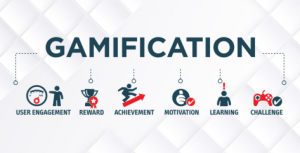Introduction In today’s rapidly evolving world, self-education stands as a cornerstone for personal and professional growth. What exactly constitutes self-education, and why is it gaining traction, particularly in 2024 and beyond? What is Self-Education? Self-education embodies the proactive pursuit of knowledge outside formal institutional settings. It empowers individuals to curate their learning experiences, catering to
Introduction
In today’s rapidly evolving world, self-education stands as a cornerstone for personal and professional growth. What exactly constitutes self-education, and why is it gaining traction, particularly in 2024 and beyond?
What is Self-Education?
Self-education embodies the proactive pursuit of knowledge outside formal institutional settings. It empowers individuals to curate their learning experiences, catering to their unique interests, pace, and preferences. In essence, it’s about taking ownership of one’s learning journey.
Importance of Self-Education in 2024 and Beyond

Image by: jotform.com
As we step into 2024 and beyond, the significance of self-education amplifies. Rapid technological advancements, shifting job landscapes, and the demand for continuous upskilling underscore the need for self-directed learning. In this era of information abundance, individuals who embrace self-education gain a competitive edge in adapting to evolving challenges.
The Role of Technology in Self-Education
Technology serves as a catalyst, revolutionizing the landscape of self-education. Let’s delve into some key technological advancements shaping this evolution.
AI Integration in Learning
Artificial Intelligence (AI) is revolutionizing how individuals learn and acquire skills. Through personalized recommendations, adaptive assessments, and AI tutors, learners receive tailored learning experiences, optimizing comprehension and retention.
Virtual Reality (VR) in Education
Immersive technologies like Virtual Reality (VR) transport learners into realistic simulations, enabling experiential learning. From exploring historical sites to conducting complex experiments, VR bridges the gap between theory and practice, enhancing engagement and comprehension.
Personalized Learning Platforms
With the proliferation of e-learning platforms, learners have access to a myriad of resources tailored to their needs. Adaptive learning algorithms analyze learner data to deliver customized content, catering to individual learning styles and preferences.
Blockchain in Education

Image by: pixelplex.io
Blockchain technology ensures the integrity and transparency of educational credentials, revolutionizing credentialing and accreditation processes. By decentralizing record-keeping, blockchain enhances trust and facilitates seamless credential verification, empowering learners to showcase their skills and achievements effectively.
Challenges and Opportunities
Despite its transformative potential, self-education faces several challenges and opportunities as we march into the future.
Overcoming Access Barriers
While technology has democratized access to learning resources, digital disparities persist, hindering equitable educational opportunities. Bridging the digital divide is paramount to ensuring inclusive access to self-education for all individuals, irrespective of their socio-economic backgrounds.
Ensuring Quality in Self-Education
As the self-education landscape expands, ensuring the quality and credibility of learning resources becomes increasingly crucial. Robust quality assurance mechanisms, curated content repositories, and peer-reviewed platforms are essential to safeguarding the integrity of self-directed learning.
Empowering Lifelong Learning
In an era characterized by rapid change, fostering a culture of lifelong learning is imperative. Empowering individuals with the requisite skills, mindset, and resources to navigate evolving landscapes ensures their continued relevance and adaptability in the face of technological disruptions.
Future Trends in Self-Education
Looking ahead, several emerging trends are poised to redefine the future of self-education.
Microlearning
Microlearning involves the delivery of bite-sized learning modules, catering to learners’ short attention spans and on-the-go lifestyles. Through concise, targeted content, microlearning enhances knowledge retention and facilitates just-in-time learning experiences.
Gamification in Education

Image by: raccoongang.com
Gamification incorporates game elements into educational contexts to foster engagement and motivation. By leveraging rewards, competition, and progress tracking, gamified learning experiences transform mundane tasks into immersive challenges, driving sustained learner participation and achievement.
Peer-to-Peer Learning Networks
Peer-to-peer learning networks harness the collective wisdom and expertise of diverse communities, facilitating collaborative learning experiences. Through knowledge sharing, mentorship, and peer feedback, learners expand their horizons, cultivate networks, and foster mutual growth and support.
Conclusion
In conclusion, the evolution of self-education in 2024 and beyond holds immense promise for learners worldwide. By harnessing the transformative power of technology, addressing challenges, embracing emerging trends, and fostering a culture of lifelong learning, individuals can chart their paths to success in an ever-changing world.
FAQs
- How can I get started with self-education? Embrace curiosity, leverage online resources, join communities, and set clear learning goals to kickstart your self-education journey.
- Is self-education suitable for everyone? Absolutely! Self-education caters to diverse learning styles and preferences, making it accessible and adaptable to individuals across age groups and backgrounds.
- What role does motivation play in self-education? Motivation serves as the driving force behind sustained learning efforts. Cultivate intrinsic motivation, set meaningful goals, and celebrate progress to stay inspired on your self-education path.
- How can I stay disciplined with self-education? Establish a consistent learning routine, eliminate distractions, set achievable milestones, and hold yourself accountable to maintain discipline and momentum in your self-education endeavors.
- Are there any drawbacks to self-education? While self-education offers flexibility and autonomy, it requires self-discipline and may lack structured guidance. Additionally, navigating the abundance of online resources can be overwhelming for some learners.
- How can self-education complement formal education? Self-education supplements formal learning experiences by providing opportunities for personalized exploration, skill enhancement, and real-world application beyond the confines of traditional educational institutions.
















